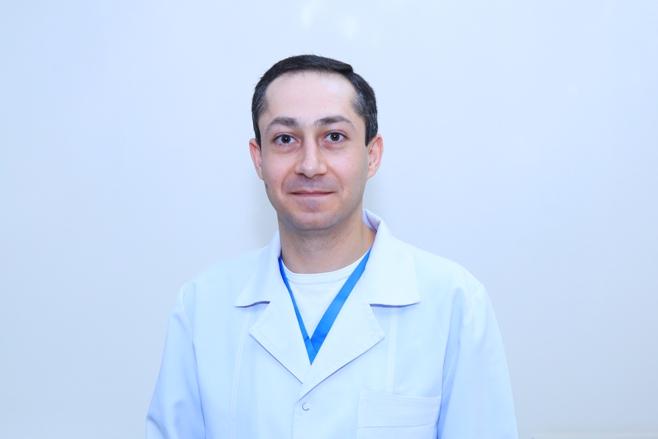What types of changes of thyroid gland require surgical intervention

Thyroid gland diseases are treatable both with the help of medications and surgical methods. In the framework of public awareness program “General Surgery Week”, the Doctors.am interviewed “Slavmed” Medical Center’s endocrine surgeon Aram Chomoyan regarding the surgical aspect of this problem.
– Dr. Chomoyan, what are the causes of thyroid gland diseases? What is the span of the problem among those within the risk group?
-The causes of thyroid gland diseases are very different. The following are some of the contributing factors: heredity, nutrition, ecology and so on. Women are five times more likely to have nodal types of thyroid diseases than men. In the latter the most common type is thyroid cancer. Tumor processes are usually aggressive among people ages15-20 and over 60. Thyroid cancer is mostly prone to treatment with surgical intervention, depending on the spread degree, combined with radioiodine therapy.
250-300 surgeries are performed annually at “Slavmed” Medical Center, vast majority of which are nodes of various sizes. Endocrine Surgery service is directed by Ara Torosyan, who has an invaluable role in introducing and developing domestic endocrine surgery.
-What types of changes of thyroid gland require surgical intervention?
– Thyroid gland diseases are treatable both with the help of medications and surgical methods. Mainly thyroid nodules divided into benign or malignant are cured surgically. Modern surgery involves three possible types of surgery: removal of one half of the affected gland, which is used in case of both benign and malignant processes, total thyroidectomy removes the entire thyroid and the thyroid tissue, and total removal of thyroid including dissection of central neck lymph nodes. This is also individual; we take into consideration the results of various studies.
Surgical treatment is also indicated in long-term hyperthyroidism. The most common is medication-based treatment, but it can be temporary or ineffective. In this case, we go to more weighty methods, depriving the gland from the function by radioactive iodine. In extreme cases, gland removal is performed with surgical intervention.
– When timely diagnosed, it is possible to avoid complications. What are some of the symptoms indicating the problem exists?
– In 95% of cases, thyroid gland nodes cause almost no complaints, are detected accidentally, or after they grow so large that they begin to suppress adjacent organs or cause cosmetic inconvenience. It is recommended to undergo a routine examination once a year, which includes an ultrasound of the thyroid gland, as hormonal imbalance issues have a distinct clinical picture.
The following indicators are typical for hyperthyroidism: weight loss, nervous tension, insomnia, trembling, aggressiveness, tearfulness, increased sexual function, and so on. Hypothyroidism, or underactive thyroid, causes weight gain because of fluids accumulating in the body, as well as hair loss, nail fragility, decreased sexual desire, fatigue, and so on.
If necessary, a thin needle puncture biopsy, considered a modern gold standard for diagnosis of thyroid gland, is prescribed. This is a high sensitivity and effectiveness method of research, with a low of false results (both negative and positive). I advise not to be reluctant of this method of research, as oftentimes it helps with detecting malignant changes in early stages, and choosing the right type of treatment. Modern medicine recommends to not perform a puncture biopsy for nodes up to 1 cm, but there are cases when based on sonographic data, the doctor is positive that there is a risk of cancer in the 8-9 mm nodes, so this examination method is used to confirm the diagnosis. Thin needle biopsy is not recommended for smaller nodes as it is proven that the latter are not dangerous, except for medullary carcinoma, in case of which it is necessary to check the calcitonin in the blood.
– What type of complications can be caused post thyroid gland surgery?
-There are potential complications with any type of surgery, but I should note that their number is quite low with us. In vast majority cases, when no complications are recorded, we can say that patients life quality does not drop, which can serve as a direct comparison to the ‘Eutirox’ medication’s dosage. There are no contraindications for use, alcohol consumption and other medications are allowed, patients can resume with their normal lifestyle and so on.
Following a surgery, patients should remain under supervision of an endocrinologist, undergo testings, in order to get diagnosed timely, in case of an ongoing process.
– What is your advice to majority of people with thyroid gland deceases?
-I advise not to be fearful of diseases, as modern medicine is capable of curing even the most difficult problems, if diagnosed correctly.

